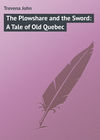Kitabı oku: «Furze the Cruel», sayfa 8
CHAPTER VIII
ABOUT ATMOSPHERE
There are secret places among the rocks of Tavy Cleave. The river has many moods; one time in the barren lands, another time in bogland, and then in hanging gardens and woodland. No other river displays such startling Protean changes. The artist always fails to catch the Tavy. He paints it winding between low banks of peat, with blossoms of pink heather dripping into the water; but that is not the Tavy. He presents it as a broiling milk-white torrent, thundering over rocks, with Ger Tor wrapped in cloud, and bronzed bracken springing out of the clefts; but that is not the Tavy. He represents it shaded with rowan and ferns, its banks a fairy carpet of wind-flowers, and suggests a gentle river by removing the lace-like pattern of foam and the big boulders, and painting the water a wonderful green, with here and there a streak of purple; but still he has not caught the Tavy. He goes down from the moor and shows a stately stream, descending slowly a lew valley between hills, partly wooded, partly cultivated; shows the smoke of scattered Bartons mixing lazily with the clouds and going with them sea-ward; shows cattle feeding and bluebells nodding; a general atmosphere that of Amaryllis and her piping shepherd, though the lad is only a dull clod and his pipe is of clay, and Amaryllis has dirty finger-nails; but again the elusive Tavy has escaped somehow. Once more he tries. There is the Tavy, like an ocean flood, coming across mud-flats, mingled with brother Tamar of the border; a dull unromantic Tavy then. The magic mist of bluebells has given way to the blue steel of the railroad, and wooden battleships, their task over, float upon its waters instead of fern-fronds. Not a fairy-tale is to be told, nor any pretty fancy to be weaved there. The pictures go into galleries, and win fame, perhaps; but the river of Tavy chuckles over his rocks, and knows he is not there.
It is a river of atmosphere. Only a dream can produce the Tavy; not the written word, nor the painted picture. Unpleasant dreams some of them, like nightmares, but human thought produces them; and human thought is the dirtiest, as well as the noblest, thing created.
In one of the secret places among the rocks Pendoggat waited, and Thomasine came to meet him there. She came because she had been told to, and about the only thing that her mind was capable of realising was that she must be obedient. Country girls have to do as they are told. They are nearly as defenceless as the rabbits, and any commoner may trap them as one of his rights. So Thomasine came down among the rocks. She had not been out with Will Pugsley lately, because it was not allowed. She wanted to, but Pendoggat had refused permission. He had indeed gone further, and had threatened to murder her if she went with any other man. Thomasine accepted the inevitable, and told her Will she could not go out with him any more. Pugsley, having saved a little money, desired to spend it upon matrimony, and as he could not have Thomasine he was going about looking for another maid. One would serve his purpose as well as another, so long as she had plenty of blood in her.
Such a thing as love without lust was unknown to Pendoggat. His only idea of the great passion was to catch hold of a woman, maul her, enjoy her flesh, and her warmth, and the texture of her clothes; the coarse, crude passion which makes a man ruin himself, and destroy the life of another, for the pleasure of a moment's madness; that same anarchy of mind which has dethroned princes, lost kingdoms, and converted houses of religion into houses of ill-fame. Pendoggat would not have gone mad over Thomasine had she been merely pretty. It was that face of hers, the blood in her, something in the shape of her figure, which had kindled his fire. All men burn, more or less, and must submit; and when they do not it is because Nature is not striving very hard in them. Much is heard of the morality of Joseph; nothing concerning the age or ugliness of Potiphar's wife. These conventional old tales are wiped out by one touch of desire, and nothing remains except the overmastering thing. The trees cannot help budding in spring. Nature compels it, as she compels the desire of the human body also.
They were out of the wind. The heavy fragrance of gorse was in the hot air. It was a well-hidden spot, and somewhat weird, a haunted kind of place. The ruins of a miner's cot were close by, and what had been its floor was then a mass of bracken. The stones were covered with flowering saxifrage. There was a scrubby brake here and there, composed of a few dwarf trees, rowan and oaks, only a few feet high, ancient enough but small, because their roots obtained little nutriment from the rock-bedded peat. Their branches twisted in a fantastic manner, reaching across the sky like human limbs contorted with strange agony. They were the sort of trees which force themselves into dreams. Some of them were half dead, green on one side and black upon the other; while the dwarfed trunks were covered with ivy and masses of polypodies; overgrown so thickly with these parasites that the bark was nowhere visible. Such a thickness of moss coated some of the boulders that the hardness of the granite was not perceptible. Beneath the river tumbled; a rough and wild Tavy; the river of rocks, the open, sun-parched region of the high moor; the water clear and cold from Cranmere; and there was a long way to go yet before it reached cover, the hanging trees, and the mossy bogs pink with red-rattles, and the woods white with wind-flowers, and the stretch of bluebell-land, the ferns, bracken, asphodel, and the pleasant winding pathways where fairy-tales and decent love abide, and the little folk laugh at moonlight.
"It be a whist old place," Thomasine said; the words, but not the thought, frightened out of her by Pendoggat's rude embrace. Like most girls of her class she was no talker, because she did not know how to put words together. She could laugh without ceasing when the occasion justified it, laughter being with her what tail-wagging is to a dog, the natural expression of pleasure or good-will; but there was not much to laugh at just then.
"You haven't told any one about our meetings? They don't know at Town Rising?" said Pendoggat.
"No, sir," answered Thomasine.
"It wouldn't do for them to know. They'd talk themselves sick. You don't wear much, my maid. Nothing under your blouse. If it wasn't for your fat you'd take cold." He had thrust his hand into the front of her dress, and clutched a handful of yielding flesh.
"Don't ye, sir. It ain't proper," entreated Thomasine.
She hardly dared to struggle because she was afraid. Instinct told her certain behaviour was not proper, although it had not prevented her from coming to that "whist old place." It was fear which had brought her there.
"How would you like to come to the Barton, and be my married wife? I want a fine maid to look after me, and you're a fine lusty sweetheart if ever there was one. 'Tis a job that would suit you, Thomasine. Better than working for those Chegwiddens. I'd find you something better to do than sitting in a cold kitchen, keeping the fire warm. There's a good home and a sober master waiting for you. Better than young Pugsley and twelve shillings a week. Say the word, and I'll have you there, and Nell Crocker can go to the devil."
Thomasine did not say the word. She had no conversation at all. She did not know that Pendoggat was giving her the usual fair speech, making her the usual offer, which meant nothing although it sounded so much. She had heard Nell Crocker referred to as Mrs. Pendoggat, never before by her actual name. She had come to meet him, supposing him to be a married man, not because she wanted his company, but because she had to accept it. She could only conclude that he really did love her. Thomasine's ideas of love were simple enough; just to meet a man, and walk with him in quiet places, and sit about with him, and be mauled by him. That was the beginning and end of love according to Thomasine, for after marriage it was all hard work. If a man made a girl meet him in secret places among the rocks, it could only be because he loved her. There could be no other reason. And if a man loved a girl he naturally suggested marriage. The matter was entirely simple. Even she could understand it, because it was elementary knowledge; the sort of knowledge which causes many a quiet moorland nook, and many an innocent-looking back garden, to become some smothered infant's grave.
"You'd like to come to the Barton, wouldn't you, my maid?" said Pendoggat in a wheedling tone.
"Iss," murmured Thomasine at last. She didn't dare say anything else. She was afraid he would strike her if she struggled. She was staring without much expression at the little dwarfed oaks, and the blood was working vigorously up and down her exposed neck and bosom as though a pump was forcing it. She had a thought just then; or, if not quite a thought, a wish. She wished she had taken a situation which had been offered her at Sourton, and had never come to Town Rising. She felt somehow it might have been better for her if she had gone to Sourton. She might have escaped something, though she hardly knew what. She could not have got into a town, as she was too ignorant and dull for anything better than a moorland Barton.
"You've done with young Pugsley?" Pendoggat muttered.
He pulled her hair down roughly, hurting her. Thomasine had good brown hair in abundance. He wanted to see it lying on her skin. Anything to add fuel to the fire!
"Iss, sir."
"That's well. If you and he are seen together there'll be hell," he cried savagely. "You're mine, blood and flesh, and all that's in you, and I'll have you or die for it, and I'd kill the man who tried to get you away from me, as I'd kill you if you played me false and ran off to any one else. You young devil, you – you're as full of blood as a whort is full of juice."
While speaking he was half dragging her towards the ruined miner's cot, and there flung her savagely on the fern.
Much lower down, where the Tavy fretted less, being freer from rocks; where there were trees, and a shelter from the wind, and flowers also in their season, honeysuckles and rose-bays, with fern in great abundance – there could be no fairyland without ferns – and green water oozing from the banks, and a fragrant kind of mist over it all; there, where the river slanted perceptibly towards the lowland, "more down under like," as Peter would have expressed it, two little people were trying to strangle one another with pure affection. They were not pixy-folk. They were only Boodles and her boy going on with the story. They would have been out of place upon the high Tavy, on the rock-strewn side of the cleave, among the ruins of the mines. There was nothing hard or fierce about them. They were children, to be treated with tenderness; kept out of the strong wind; put among the flowers where they could roll and tumble without hurting themselves; wrapped in the clinging mist full of that odour of sweet water and fresh foliage which cannot quickly be forgotten when it has been enjoyed.
"I thought I was not going to see you any more," said Boodles with a fine indifference.
"Should you have cared very much, sweetheart?"
"Not a bit, really. A girl mustn't expect too much from a sailor boy. They are fickle, and keep a sweetheart at every place they stop at. Girls at every port. Red, white, and yellow girls. A whole heap of them!"
"But only one all the time," said Aubrey. "One best beautiful girl who makes all the others seem nothing, and that's always the girl he leaves at home and comes back to. You were always in my thoughts, darling."
"But you never wrote," murmured she.
"I promised mother I wouldn't," he said, with a little hesitation.
"Then she does know," cried Boodles quickly. "Well, I think she ought to, because we can't go on being so chummy – "
"Lovers," he amended.
"No, we can't," she said decidedly. "Your people must know all about it, and like me, and tell me I'm nice enough, if we are going on in the same old way. You see, boy, I had got used to the idea of doing without you, and I don't want to start again, and then your people to say I'm not nice enough. We are growing up now. I'm in long frocks, and – and at our age things begin to get serious," went on the seventeen-year-old girl of the radiant head somewhat dolefully, as if she was rather afraid she was past her prime.
"I'm going to take you to see mother. I promised her I would," said Aubrey. "Before going away I told her I was awfully in love with you, and she made me promise not to write, but to see what my feelings were when I came back. And now I've come back, and I love you more than ever, because I love you in a different way. I was only a boy then, and now I am a man, and it is as a man that I love you, and that sweet golden head and your lovely golden face; and if my people behave properly, I shall get a ring, and put it on this little finger – "
"You silly boy. That's my right hand," she laughed.
"Then there will be only two more years to wait."
"I shall be only a baby," sighed Boodles.
"Darling, you will be as old as I am now; and I'm nineteen," said Aubrey, with all the dignity and assurance of such longevity.
"Fancy such a child with an engagement-ring! It would be absurd!" said Boodles.
"I shan't be well off, darling," he said, making the confession with a boy's usual awkwardness.
"Then I won't have you," she declared. "I must have a boy with heaps of money, who will give me all the luxuries I have been used to. You know we live very expensively at Lewside. We have a joint of meat every week, and father has two eggs for breakfast, and I have two new frocks every year – I get the stuff and make them myself. If I had a hungry boy to keep, I should want a lot of housekeeping money, though I can make a penny do the work of three halfpence."
"Dear Boodles!"
"Does that 'dear' mean expensive? Well, I am. Some of the stuff for my frocks costs I don't know how much a yard, and it's no use trying to be pretty to a draper, for you can't smile them down a single penny."
"You are very silly, darling. As if I should let you make your own frocks!"
"You are much sillier. So silly that you are hardly fit to live. Telling me you won't be well off! I think if it was all over between us now I shouldn't care a bit."
They came out upon an open space beside the river. It was clear of trees, and the sun was able to shine upon the girl's head, so Aubrey stopped and took off her hat with reverent hands. She looked up with a pretty smile. He drew her close and they kissed fondly. It was a clean healthy kiss, with less folly in it than most, as sweet as the water, and fresh as the mist; the sort of kiss that makes the soul bud and bring forth blossoms. They had changed a good deal since those days when they had first entered fairyland. There was womanhood in Boodles, and a good deal of the man in Aubrey. They felt the change. It added responsibility, as well as pleasure, to that kiss. In much the same way their appearance had altered. Boodles was rather thinner; she had not quite the same soft, dumpling-like, school-girl cheeks. Aubrey had still the girl's face, but it had become a little hardened and had lost its down. Training and discipline had added self-reliance and determination to his character. They were a pretty pair, little housewife Boodles and her healthy boy. It was a pity they were transgressing the great unwritten law of respectability by loving one another.
"The hair hasn't altered much," murmured the radiant child.
"Only to become more lovely. It is a deeper gold now, sweetheart – real gold; and before it was trying to be gold but couldn't quite manage it."
"This face is just the same to me, except for the nutmeg-graters on the chin and lips. You have been shaving in a hurry, Aubrey."
"You know why. I had to come and meet some one."
"I think you are such a nice boy, Aubrey," faltered Boodles.
Her eyes were so soft just then that he could not say anything. He took the glowing head and placed it on his shoulder, and warmed his lips and his heart with the radiant hair. What a life it would have been if they could have gone on "happy ever after," just as they were then. The first stage of love is so much the best, just as the bud is often more beautiful than the flower.
They walked on between the sun and the fragrant mist, having by this time got quite away from the dull, old place called earth. Boodles carried her hat, swinging it by the strings, and placed her other hand naturally on his arm. Aubrey had quite made up his mind by that time about many important matters. He would marry Boodles whatever happened. He was fond of his parents, but he could not permit them to come between him and his happiness. As there was only one girl in the singularly sparsely-populated world a big price must be paid for her. Even nineteen can be determined upon matters of the heart.
"You know Mr. Weevil is not my father," she said timidly, hardly knowing why she thought it necessary to make the admission; and then, rather hurriedly, "I am only his adopted daughter."
She had to say that. She did not want him to have unpleasant thoughts concerning her origin. She wanted to be perfectly honest, and yet at the same time she dreaded his learning the truth about herself. She did not realise how ill-suited they were from the ordinary social and respectable point of view, although she wanted to justify her existence and to convince him how unwilling she was to deceive.
"I am coming to see him soon," said Aubrey at once. He did not give the matter a serious thought either. He was much too young to bother his head about such things, and besides, he supposed that his sweetheart was the daughter of some relation or connection of Weevil's, and that she had been left an orphan in her childhood, and had been adopted as a duty, not as an act of charity, by the eccentric old man. He had very kindly thoughts of Weevil, because he knew that Boodles had been well taken care of, and always worshipped in a devout and proper manner by the tenant of Lewside Cottage.
"I have told him all about you," the girl went on. "I am sure he thinks you quite a suitable person to take perpetual charge of his little maid, only he is funny when I talk to him about you. It must be because he doesn't like the idea of getting rid of me."
Aubrey supposed that was reasonable enough. He judged Weevil by his own feelings. The idea of losing Boodles would have made him feel "funny" too.
"It does seem selfish and ungrateful," the child went on. "To be brought up and petted, and given everything by a dear old man, and then one day to run off with a nice young boy. It's very fickle. I must try and feel ashamed of myself. Still I'm not so wicked as you. If you would leave me alone I should abide with him always – but then you won't! You come and put selfish thoughts into my head. I think you are rather a bad boy, Aubrey."
The young sailor would not admit that. He declared he was quite a natural creature; and he reminded Boodles that if she hadn't been so delightful he would not have fallen in love with her. So it was her own fault after all. She said she was very sorry, but she couldn't help it. She too had only behaved naturally. She was not responsible for so much glowing hair and golden skin. Others had done that for her. And that brought her back to the starting-point, and she felt vaguely there was something she ought to say about those unknown persons, only she didn't know what. So she said nothing at all, and they went on wandering beside the river where it was wooded and pleasant, and thought only of the present, and themselves, and how very nice it was to be together; until a jarring note was struck by that disagreeable thing called Nature, who never changes her mood, but works seven long days of spitefulness every week.
Aubrey had brought his dog with him, and the little beast had put aside his social instincts in that glorious hunting-ground, and had gone to seek his own pleasures, leaving his master to the enjoyment of his. Just then he returned, somewhat sheepishly, as if afraid he ought to expect a beating, and slunk along at Aubrey's heels. Boodles at once set up a lamentable cry: "Oh, Aubrey! he's got a bun, a poor little halfpenny bun!"
The dog had caught a young rabbit about the size of a rat. He dropped it with wicked delight, touched it up with his nose, made the poor little wretch run, then scampered after it, caught and rolled upon it with much satisfaction, shook it, tossed it in the air, made it run again, and captured it as before. He was as happy as a child with a clockwork toy.
"Take it away," pleaded Boodles. "It's so horrid. Look at the poor little thing's eyes! It's panting so! If he would kill it at once I wouldn't mind, but I hate to see him torture it."
The boy called his dog, who refused to obey, thinking it all a part of the glorious game. He would let Aubrey come near, then make the victim run, and scamper after it. The clockwork was getting out of order. The rabbit was nearly run down. Aubrey caught the dog, took the little creature away, struck it smartly upon the back of its neck, and the rabbit gave a little shriek, some small shivers, and died. Boodles turned away, and felt miserable.
"Shall I beat him?" said Aubrey, who was very fond of his dog.
"No – please! I don't care now the poor bun is dead. That tiny scream! Oh, you nasty little dog! You are not a bit like your master. Go away. I hate you."
"He can't help doing what his nature tells him, dear."
"Is it his nature?" wondered Boodles. "I suppose it is, but it seems so funny. He's so gentle and affectionate to us, and so very cruel to another animal. If it is his nature to be gentle and affectionate, why should he be cruel too?"
That was too deep for Aubrey, although in his confident boy's fashion he tried to explain it. He said that every animal respects those stronger than itself, and is cruel to those that are weaker. Boodles was not satisfied. She said that was the same thing as saying that affection is due to fear, and that a dog only loves his master because he is afraid of him. She was sure that wasn't true.
They did not pursue the subject, however, for at that moment Nature again intervened in her maliceful way. The dog was trotting on ahead, his stump of tail erect, quite happy with himself. Suddenly he yelped, and rushed off into the wood.
"Now he's been and trodden on an ants' nest," said Aubrey, with some satisfaction.
"Or perhaps he saw a pixy under the bracken," said Boodles.
As she spoke Aubrey caught her, swung her back to a sound of furious hissing, and Boodles saw a viper upon a patch of bleached grass, head erect, swaying to and fro, and exceedingly angry at being disturbed. It was a beautiful, as well as a malevolent, creature. Its black zig-zag markings were vivid in the sunlight, and its open mouth was as red as a poppy-leaf.
"You were just going to tread upon it," cried the boy.
"The poor dog!" lamented Boodles, all her sympathies naturally with the suffering animal.
Then she had to be sorry for the reptile, for Aubrey declared it must die, not so much because it had bitten the dog, as because it might have bitten her ankle, and he went and destroyed it with his stick.
By that time Boodles was wretched. She felt that most of the pleasure had gone out of their walk. They had been so happy, in a serene atmosphere, and then the weather had changed, as it were, and the cruelty and malevolence of Nature had come along to remind them they had no business to be so happy, and that the place was not an ideal fairyland after all. There was an atmosphere of suffering all around, though they could not always see it, and cruelty in every living thing. Even the sun was cruel, for it was beginning to make the radiant head ache.
They went after the dog, and found him much distressed, because he had been bitten in the neck, and swelling had commenced. Living upon Dartmoor, Boodles knew all about viper-bites, and she ordered Aubrey to take the dog back and attend to the wound at once. Then she had to gulp down a lump in her throat and rub her eyes. The weather had changed badly, and things had gone quite wrong. When they had walked in the wood as little children nothing unpleasant had ever happened, or at least they had never noticed anything disagreeable. Now they were grown up, as she thought, all sorts of troubles came to spoil their ramble. The dog had tortured the rabbit; the viper had bitten the dog; Aubrey had killed the viper. The tale of suffering seemed to be running up the scale towards herself. Was there any creature, stronger than themselves, who could be so brutal as to take pleasure in biting or torturing such harmless beings as Aubrey and herself?









